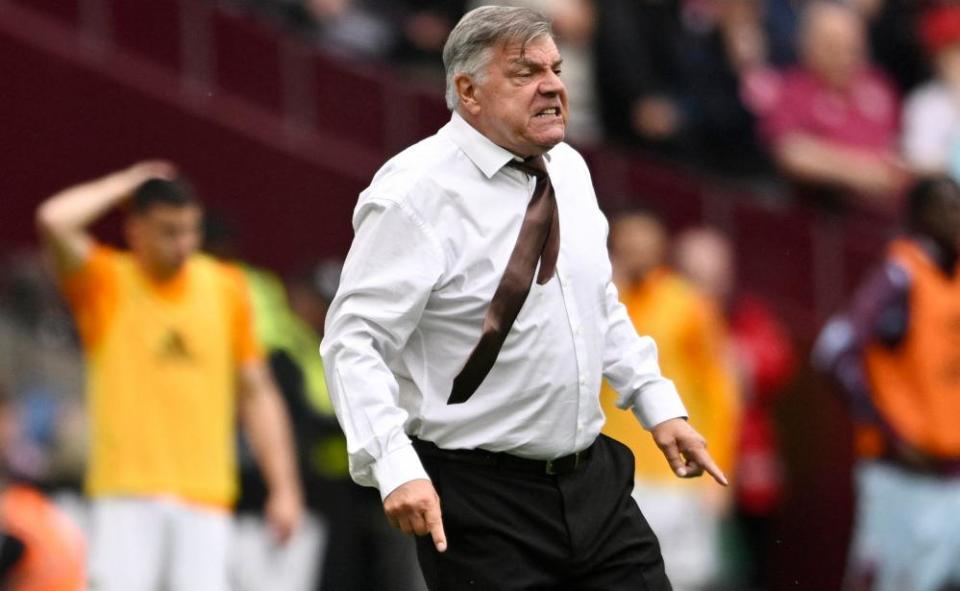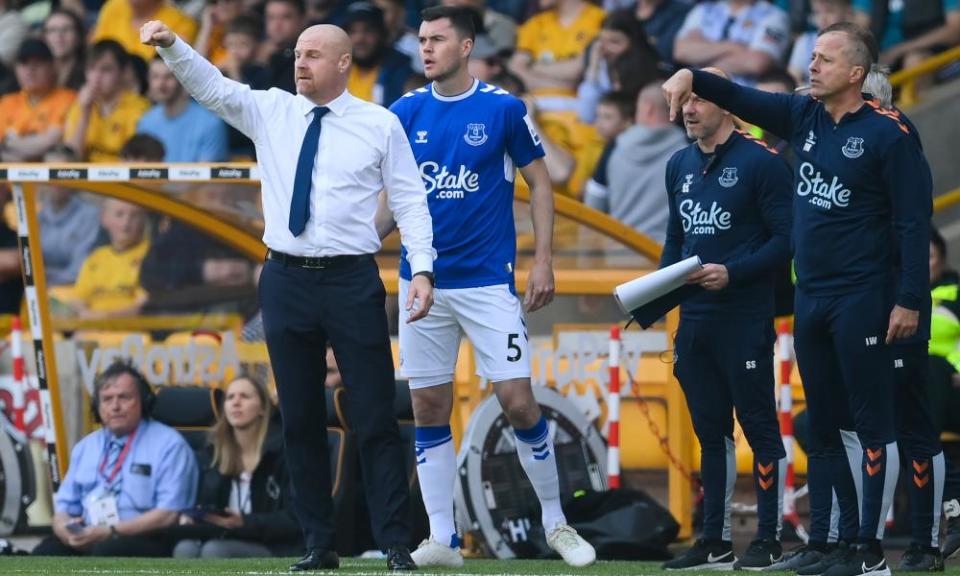Premier League final-day survival battle is watershed moment for all three clubs
I do not envy the players, staff and fans of the three clubs fighting for Premier League survival on the final day but as a neutral it is very exciting. One of the reasons why we love football is the jeopardy involved with promotion and relegation – it adds drama to the spectacle – but Sunday will be 90 minutes of emotional turmoil for Everton, Leeds and Leicester supporters.
I feel quite nostalgic for the days of crackly handheld radios in the crowd, with people desperately trying to find out what was happening in other matches when survival was at stake. That ripple of information when someone scored or there was a penalty was always fascinating to witness. Thankfully, I was never involved in any last-day relegation drama in my career.
The pressure to stay in the Premier League has increased over the years, because of the financial rewards that come with being in the division and the huge impact that relegation can have on a club. Those players will know the difference between staying up and going down.
On Sunday all three clubs are playing home games that are very winnable. Everton face Bournemouth, who have nothing to play for; Leicester play West Ham, whose minds may be on the Europa Conference League final; and an indifferent Spurs travel to Elland Road. There is no better place to play a match of this importance than in front of a raucous home crowd, desperately willing you on.

There are many reasons why these teams find themselves in this position. Everton and Leeds faced a similar battle last year, with the latter staying up the final day. It should have been a moment to reflect and make improvements but they do not seem to have learned their lessons. At the start of the season I thought they would be in the bottom half but assumed they would be clear of danger.
Leicester being in the bottom three has surprised me as well. But the owners are in the duty free industry and their business was hit during the pandemic, meaning investment in the squad has dropped. Historically, Leicester have brought in good players and sold them on. It is an impressive list, from N’Golo Kanté to Wesley Fofana, with Riyad Mahrez, Harry Maguire and Danny Drinkwater in between. They sell their top players and reinvest in the squad but it has not worked with the latest round of replacements. Leicester could go from winning the championship to playing in the Championship in the space of seven years, which is a dynamic shift.
What all three clubs have in common is managerial changes. Leeds have sacked two managers and now have Sam Allardyce in charge, while Everton and Leicester both opted to make a change. Everton flinched first to dismiss Frank Lampard. Twisting in January allowed Sean Dyche to get his ideas across and make the players understand his methods, and even though the squad does not necessarily suit his style, it has reaped rewards thus far.
Sacking a manager is stick or twist and may or may not pay off. Leeds have created instability, and going from Marcelo Bielsa to Allardyce in just over 14 months is a big change in direction. For Allardyce, four matches is a very small window in which to turn things around, especially when the recruitment was not designed around him. Crystal Palace, Wolves and Aston Villa have shown that making a change can work but Nottingham Forest prove that stability can bear fruit, too.

Leicester’s issue was that things had gone stale under Brendan Rodgers. They had been unable to refresh the squad as he might have wanted, resulting in this season being a struggle. The question is whether they left it too long before removing Rodgers at the start of April.
The Leicester and Leeds players would rather be in Everton’s position. Dyche’s side are two points clear of their rivals and have their destiny in their own hands. Everton have suffered from Dominic Calvert-Lewin’s injury problems this season because teams want a top striker, a focal point they can aim for and who scores goals. It takes the pressure off the rest of the team.
Whichever clubs go down, all three have to reset. They need to create a clear structure and plan, spelling out to players and fans what they hope to achieve and not divert from that. Southampton are making those adjustments because they know they will be in the Championship and will have a new director of football in Jason Wilcox and a manager in Russell Martin who has made clear his philosophy throughout his career. The reason why Brighton and Brentford punch above their weight is that they have laid foundations and continue to work with the same philosophy regardless of who is in the dugout. It has helped them to achieve top-half finishes.
Getting relegated is not the end of the world – it is part of football’s cycle. What is more important is how a club reacts. If they get it wrong, that is when the real problems can start.

 Yahoo Sport
Yahoo Sport 





































